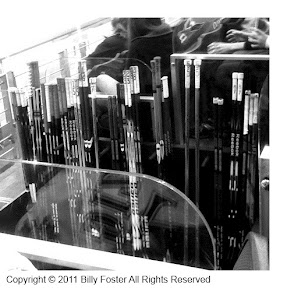Posts Tagged ‘expected value’
Hockey has a strange system to determine who makes the playoffs. Each team receives two points for every match they win, zero points for every match they lose in regulation and one point for each game that they lose in overtime. This point total, not overall record, determines which teams make the playoffs.
For simplicity, let’s assume in any given match that each team has an equal chance of winning. The expected value for any regulation match is one point (the average of the winner’s two points and the loser’s zero) and the expected value for any overtime match is one and a half points (the winner gets two, the loser gets one).
In-conference matches involve one team trying to gain ground on the other. The expected value is not important. In this situation, teams only care about the expected gain (or loss) in points relative to their opponent. An overtime win results in a net gain of one point while a regulation win awards a net gain of two.
Teams from different conferences don’t compete with each other for playoff spots. So while teams playing within their conference care about expected gain, teams playing outside their conference care about expected value. If teams try to maximize these values, they will prefer for conference games to end in regulation and non-conference games to go into overtime. This affects third period strategies in close games. More importantly, it provides plenty of incentive for unspoken collusion between teams in different conferences.
Expected value is a concept that allows us to factor in the probability of an uncertain event into our calculations. Imagine that you have a summer roofing job in Sandy, Oregon. I chose Sandy because it gets 182 precipitation days per year so on any given day there is a 50% chance of not working due to the weather.  If you get paid $80 per day worked and $20 when you do not work due to rain, what should you expect to make in a twelve-week summer? Let’s break this down into a smaller problem.
If you get paid $80 per day worked and $20 when you do not work due to rain, what should you expect to make in a twelve-week summer? Let’s break this down into a smaller problem.
The expected value of any given workday is the average of the payment received for working ($80) and not working ($20), which is $50. This is because there is an equal chance of either type of day occurring. By extension, the expected value of a five-day work week is $250 and of total summer income is $3,000.
What does this have to do with betting? A fair bet has an expected value of zero. For example, a bet of $10 on a coin flip is fair. There is an equal chance of losing or gaining $10. The average of these two values (+10 and -10) is zero. Casinos make their money by offering unfair bets. The expected value of (almost) every casino bet is negative (and none of them are positive). They cannot collect a guaranteed profit from a fair game so they count on you to play a rigged one. What do you suspect about the expected value of casino profits?

